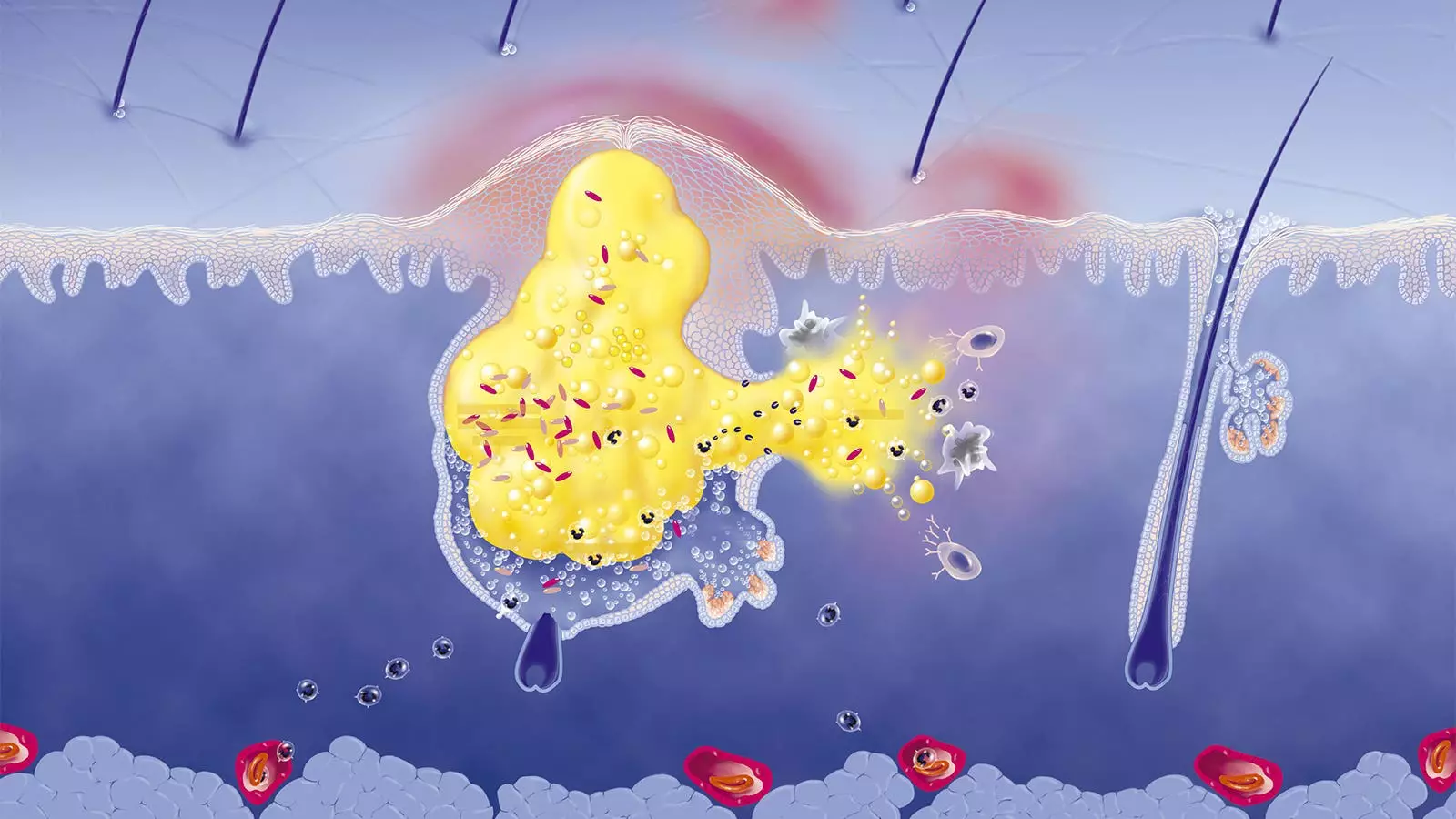Acne is a common skin condition that affects millions of people worldwide. The American Academy of Dermatology (AAD) recently updated its clinical guidelines for acne treatment, providing strong recommendations on various treatment options. The updated guidelines, published in the Journal of the American Academy of Dermatology (JAAD), aim to offer evidence-based recommendations to healthcare professionals regarding the management of acne.
One of the key recommendations from the panel of experts is the use of multimodal therapy, which combines multiple mechanisms of action when managing acne with topical medications. This approach has been shown to be effective in improving acne symptoms and achieving better outcomes. By using different treatment modalities, such as antibiotics, benzoyl peroxide, topical retinoids, and oral isotretinoin, healthcare professionals can target different aspects of acne and optimize treatment results.
The expert panel made five strong recommendations based on the available evidence. These recommendations include the use of oral doxycycline, topical antibiotics (including fixed-dose combinations), topical retinoids, topical benzoyl peroxide, and oral isotretinoin. These treatment options have demonstrated significant efficacy in managing acne and are considered the gold standard by the experts.
The guidelines highlight several emerging acne treatments that show promise in addressing the hormonal causes of acne and offer advantages over existing therapies. Clascoterone, the first FDA-approved treatment that can address hormonal causes of acne in both men and women, is recommended by the expert panel. Additionally, sarecycline, a narrow-spectrum tetracycline, is suggested as a potential alternative to existing tetracyclines such as doxycycline and minocycline. These new treatments provide additional options for healthcare professionals to tailor acne treatment according to individual patient needs.
While the availability of new acne treatments is promising, it is crucial that payers provide coverage to ensure patients have access to these valuable therapies. With the introduction of novel treatments such as clascoterone and sarecycline, it becomes imperative to navigate potential barriers such as insurance coverage to ensure optimal patient care. By advocating for coverage, healthcare professionals can play a crucial role in improving patient outcomes and expanding treatment options for acne.
The updated guidelines reflect a transition from the Strength of Recommendation Taxonomy (SORT) to the Grading of Recommendations, Assessment, Development, and Evaluation (GRADE) approach. This shift aligns the AAD guidelines with international standards and enhances the consistency and quality of recommendations. The GRADE approach provides a standardized framework for evaluating the available evidence and grading the strength of recommendations, ensuring that healthcare professionals can rely on the guidelines’ accuracy and validity.
In addition to the strong recommendations, the expert panel also made several conditional recommendations based on the existing evidence. These recommendations include the use of topical agents such as clascoterone, salicylic acid, and azelaic acid, as well as the systemic antibiotics minocycline and sarecycline. The guidelines also suggest doxycycline over azithromycin due to the lack of evidence supporting the superiority of minocycline in comparison with doxycycline. These conditional recommendations acknowledge the potential benefits of these treatments but recognize the need for further research and individualized decision-making.
For patients requiring hormonal treatments, the panel conditionally recommended oral contraceptives and spironolactone. It is important to note that potassium monitoring for spironolactone may not be necessary for healthy patients but should be considered for those with risk factors for hyperkalemia. These hormonal treatments offer additional options for patients with acne driven by hormonal imbalances and can be beneficial when used appropriately.
The guidelines also provide specific recommendations for patients with severe acne. The panel conditionally recommended daily isotretinoin dosing over intermittent dosing, highlighting the potential benefits of a continuous treatment approach for severe cases. Furthermore, the experts suggest using standard isotretinoin or lidose-isotretinoin for the management of severe, treatment-resistant acne. By tailoring treatment options to the severity and persistence of acne, healthcare professionals can optimize outcomes for patients with challenging cases.
Given the concerns surrounding antibiotic resistance, the expert panel advises healthcare professionals to limit the use of systemic antibiotics whenever possible. By reducing reliance on antibiotics, clinicians can minimize the risk of developing resistant strains of bacteria and contribute to more sustainable and responsible antibiotic use. This recommendation serves as a reminder of the importance of exploring alternative treatment options and considering the long-term implications of antibiotic use in acne management.
The updated guidelines from the American Academy of Dermatology provide valuable recommendations for the treatment of acne. By emphasizing the importance of multimodal therapy, considering emerging treatments, and tailoring treatment to individual patient needs, healthcare professionals can optimize outcomes for patients with acne. The shift to the GRADE approach ensures the guidelines’ reliability and aligns them with international standards. With careful consideration of these recommendations, healthcare professionals can deliver evidence-based acne treatment and improve the quality of patient care.

Leave a Reply